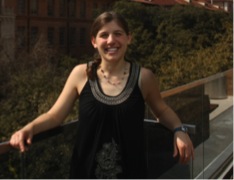|
2/15/2012 0 Comments Graduate Women’s Groups: Improving your Research Experience by Fostering CommunityBy Amanda Lanza The fields of science and engineering offer exciting opportunities for careers and personal and professional development. And, while the past decades have brought with them significant inroads in diversity in these fields, these fields remain dominated by men. The gap between male and female representation is especially stark moving from undergraduate to graduate education, with only 23% of all graduate engineering students in the United States being female (1). While most women who chose to pursue graduate degrees in science and engineering enjoy the companionship of their male classmates, there is no substitute for female camaraderie. In the Chemical Engineering department of the University of Texas at Austin, we are solving this problem by fostering a sense of community amongst female graduate students and post-doctoral researchers. Because our female graduate students are scattered throughout different labs, buildings and even campuses, our events bring all the women together and create opportunities to make new friends and catch up with classmates. We focus on professional development by hosting seminars on topics such as the academic application process or working in national labs. We organize informal discussion sessions with faculty and visiting speakers, who serve as positive female role models in science and engineering. We also organize fun events, such as intramural sports, dinners and lunches. In addition to these benefits, this group provides its members opportunities for leadership The Graduate Women’s Group in ChemE at UT Austin is quickly gaining momentum and popularity. Our model could easily be adapted to other schools and departments. If you want to create a similar group, the best way to start is by meeting with a department chair or graduate advisor and proposing the idea. Don’t be intimidated if you do not have a previous relationship with these individuals. Remember that you are working to improve your department and enrich the female scientific community: both are very likely goals for your department administration as well. If you are uncomfortable meeting directly with these individuals, another option is to first meet with another faculty member with whom you have a good relationship, especially if that faculty member is supportive of the female community. Before your meeting, consider what you want to get out of your group, including what events you will host, how much money is needed to fund these events, and how often you will meet. Have a few specific ideas in mind. During your meeting, ask specifically but politely for what you want. You will most likely be pleasantly surprised by how receptive people are, as costs to support a few social activities are negligible compared to the massive operating budgets of science departments. Shoot high with your requests, but be prepared to offer a compromise. For example, suggest monthly lunches, and if the budget will not cover that, compromise by suggesting events every other month. When you’re ready to start hosting events, remember to be inclusive and extend invitations to all the graduate women in your department. You may also decide to invite post-doctoral women and female graduate students from other departments. Send reminder emails, because graduate students often commit to things then forget about them at the last minute. At your initial meetings, encourage ideas and discussion about future events from all attendees to make people feel more included and invested in the group. Keep the events diverse, balancing fun with career-focused events. Remember to bring young leadership into the fold, and focus on making your group sustainable. Keep in mind the day will come when you receive your degree and move on to other things. As part of your legacy, take steps to ensure that your group continues in your absence. With any new idea or group, strong leadership is the key to success, and the focus should be on continuity and simply getting things done. Founding a group that specifically targets women in your graduate department can be a very rewarding endeavor that enriches not only your graduate experience, but also those of female classmates for years to come. Furthermore, it is an important step in increasing female presence in science and engineering, and that is something we can all support. References: 1From the National Science Foundation 2009 Statistics on Women, Minorities, and Persons with Disabilities in Science and Engineering, Graduate Enrollment Table About the Author Amanda M. Lanza grew up in the suburbs of Boston, MA and developed a passion for math and science in high school. She received her B.S. in Chemical Engineering from the Massachusetts Institute of Technology in 2008. She is currently a PhD candidate in Chemical Engineering at the University of Texas at Austin and the recipient of an NSF Graduate Fellowship and Donald D. Harrington Dissertation Fellowship. She works in the laboratory for Cellular and Metabolic Engineering and her research focuses on the development of tools to better understand cellular hosts and engineer them to produce high value chemicals. This work has applications in biotechnology, pharmaceutics, systems biology and gene therapy. Outside of the lab, Amanda is an avid distance runner, having completed six marathons, and enjoys skiing, hiking, traveling, and cooking vegetarian food in her free time.
0 Comments
|
UT Austin Blog!Follow our blog for announcements from the UT Austin team and for contributions from our affiliates! ArchivesCategories |
The Scientista Foundation, Inc. All Rights Reserved © 2011-2021 | Based in NY | [email protected]
The Network for Pre-Professional Women in Science and Engineering
The Scientista Foundation is a registered 501(c)(3) -- Donate!
The Network for Pre-Professional Women in Science and Engineering
The Scientista Foundation is a registered 501(c)(3) -- Donate!

 RSS Feed
RSS Feed